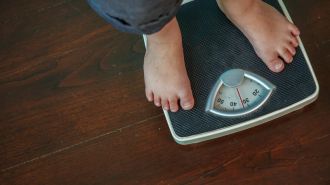- Our studies
- Our research
- Publications and resources
- Data access and training
- About
- News
- Events
- Get in touch
- Join our mailing list
Welcome to our news and blogs section. Here you’ll find the latest developments and insights from across our longitudinal studies.
Growing Up in Digital Europe (GUIDE) is the UK pilot of a major European initiative to create internationally harmonised data for research on child development and wellbeing.

Children who experience a family break-up in late childhood and early adolescence are more likely to have emotional and behavioural problems than those living with both parents, according to a new study.

Adolescents using social media for three hours or more a day are more likely to show signs of depression at age 14, compared to their peers who use it less often.

Equal access to quality education is not only important for children’s individual life chances, it’s vital for their future participation in society, Professor Alissa Goodman told delegates at a UNICEF event in Florence, Italy in October.

Children born to immigrant parents tended to trail behind their peers in reading and maths in the 1970s and 1980s, largely due to their social background.
Childhood and adolescent mental health are the focus of a new short film from the UCL Institute of Education (IOE), launched today, World Mental Health Day (10 October 2018).

Children from some ethnic minority groups are most likely to aspire to university and aim for well-paid jobs, a new study has found.
This webinar introduced users to the new MCS6 (Age 14) time use diary and accelerometry data deposit. A recording of the webinar is available to view on the event page.

Our initial findings from the Millennium Cohort Study Age 14 Sweep cover a range of themes, from mental health to levels of obesity and risky behaviours.

New findings published by CLS during Mental Health Awareness Week have revealed how teenage girls from less well-off families are more likely to experience mental ill-health than their better-off peers.

To coincide with the Millennium Cohort Study time use diary and accelerometer data release, CLS Survey Manager, Dr Emily Gilbert, discusses how the use of new technology has enabled us to gain new insights into the lives of the millennial generation.

Teenagers are far more likely to spend their time on social media and gaming after school than they are to be doing homework, according to new data gathered from around 3,500 teenagers in the UK.

Disadvantaged children born at the start of the 21st century weighed up to 5kg more in their childhood and early teenage years than those from more privileged backgrounds, a new study has found.
Ryan Bradshaw
Senior Communications Officer
Phone: 020 7612 6516
Email: r.bradshaw@ucl.ac.uk